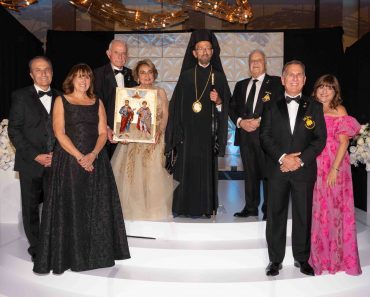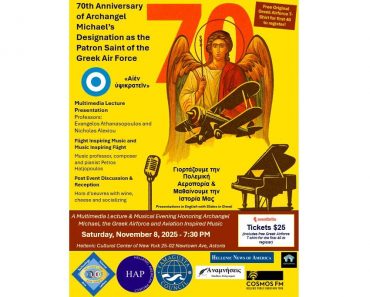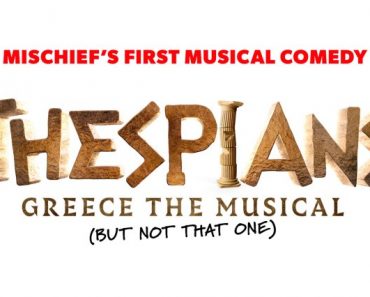Less a singer-songwriter and more a cultural monolith, Taylor Swift bestrides the world. So, it’s little surprise her oeuvre has been deployed in English courses the world over. Her oft-documented dalliances with classic literature — from Shakespeare to Fitzgerald — showcase her own poetic prowess, casting her as “an artist who wears her literary influences on her sleeve, turning them into ubiquitous chart-toppers”. Music reviewer and self-described “nerdy loudmouth with delusions of academic adequacy” John Hayden believes, however, that “there remains scope for exploration of Swift’s fondness for the tortured poets of ancient Greece and Rome”.
Indeed, he will explore these links at the 47th meeting of the Australasian Society for Classical Studies (ASCS) in Auckland in February in a paper entitled “‘Magic. Madness. Heaven. Sin’ — Taylor Swift, Ancient Poetry, and the allure of amor”.
A former classical studies teacher, Hayden believes Swift shares “uncanny parallels” with the likes of Greek poet Sappho through not only their words (“both see desire as a force”) and the Roman Catullus (“known for going from ‘0-100’ with ease”) but also their worlds. “Since ancient Greek society was largely male-dominated, Sappho’s poetry has marked her as a fascinating subject of speculation, much like Swift, with media and fans alike keen to salaciously speculate on the subject(s) of her songs, putting her at the forefront of reception studies.”
Classical Reception is the study of how the Greco-Roman world has been “received” by subsequent generations, how it has been appropriated, reconceptualised and recontextualised, and how, in the process, it has shaped the history of ideas in the modern world. This includes everything from modern adaptions of Greek tragedies, the myriad tales retold by novelists Stephen Fry and Natalie Haynes, as well as film-makers — Christopher Nolan’s big screen version of Homer’s Odyssey is one of 2026’s most anticipated features. Myriad musical artists also engage with the complex dynamic and durability of ancient texts in the modern world, with Swift in particular showcasing a debt to the ancients.
Since leaving teaching to pursue an “unhealthy obsession with Classical Reception and pop culture at-large”, Hayden has presented conference papers on the uses and abuses of the classics in hip-hop, including how the discography of Pulitzer Prize-winner Kendrick Lamar reflects Graeco-Roman ideals of heroism. He has also developed and delivered courses for the Save Ancient Studies Alliance (Sasa), a non-profit organisation working to promote the study of the ancient world. He cites Auckland-raised and educated Richard F. Thomas, senior professor of classics at Harvard University, Bob Dylan fan, and soon-to-be fellow ASCS presenter (discussing “The Homeric Bob Dylan”) as the impetus for his research interests, as well as “Heavy Metal Classicist” Dr Jeremy Swist (Michigan State University), whose “mahi linking modern metal to the ancient Mediterranean helped me grow to adore the allure of the incongruous”.
The history of Classical Reception in Aotearoa is as storied as mythology itself. German émigré Agathe Thornton (1910-2006) was a classics lecturer at the University of Otago from 1948. Her landmark Maori Oral Literature: As Seen by a Classicist was based on a series of lectures she gave in the late 1980s, which sought to start a dialogue between two seemingly disparate cultures, linking the Greek practice of xenia (“hospitality” or “guest-friendship”) and manaakitanga, as well as obvious parallels in the storytelling tradition. In more recent times, Ōtautahi-based artist Marian Maguire, whose lithographs are internationally admired, has dissected the colonial history of Aotearoa by presenting characters from mythology and history — rendered in the style of Greek vase painting — and populating the landscape with their interactions.
There’s clearly something in the water of our nation’s capital, too, with Victoria University as Classical Reception’s Mt Olympus; associate professor of classics Simon Perris has ploughed a singular furrow examining classical allusion in Māori literature, and co-editing the landmark volume Athens To Aotearoa: Greece and Rome in New Zealand Literature and Society (2015). The late Emeritus Professor Arthur (Art) Pomeroy was internationally recognised for his innovative studies of the relation between television, film and the classical world. Tackling topics from Alexander the Great’s on-screen depiction, to the ways in which Buffy the Vampire Slayer and Xena (Warrior Princess) ushered in a new kind of hero shying away from “supercharged machismo”, Pomeroy delighted in effortlessly blending the “high art” world of the ancients across such a “low-brow” medium. Dr Hamish Cameron, too, is attempting to usher the discipline into the modern era. His areas of expertise include Roman history, ancient geographical literature, as well as video and analogue games that deal with the classical world, having published numerous articles on “playing with Classical Reception”, most notably in the Assassin’s Creed franchise.
Also appearing at ASCS is Dr Maxine Lewis, a senior lecturer in classics and co-head of gender studies at the University of Auckland, currently researching Swift’s use of Greek mythology. Dr Lewis’s paper, entitled “What a shame she went mad: Taylor Swift, Cassandra, and Violence Against Women”, examines Swift’s 2024 track Cassandra, which explores themes of betrayal, disbelief and isolation using the story of Cassandra, a Trojan princess-turned-prophetess, cursed by Apollo after rejecting his advances: “I have always been interested in the radical side of classics, including later political, feminist, and queer responses to the Greco-Roman world, and the potential to use ancient material in the classroom to stimulate debates about our own society. This has led me to publish on feminist responses to the classics from women writers.” Indeed, it is using ancient models to illuminate understanding of the modern world — including its musical artists — which remains at the core of reception studies.
Dr Cameron believes “reception studies puts the ancient world into direct dialogue with the modern world, and is deeply concerned with interpreting how the past is used in contemporary life, including for political and social purposes.” He sees much value in the discipline, even as technology marches inexorably on. “One of the most important skills classics teaches is how to make sense of complex and unfamiliar information … these skills are especially important in the current post-truth moment, especially with the rise of AI slop.”
Dr Swist speaks to the agency afforded by Classical Reception: “the musical, visual, and lyrical themes of artists and genres (we) listen to on a daily basis can be deeply personal and meaningful, and, from metalheads to Swifties, be elemental to (our) social identities. The various ways of associating popular music with topics of ancient mythology, literature, history, art and philosophy therefore have immense potential for engaging students and making course content personally meaningful and relatable to them.”
Likewise, Tyla Cascaes, a PhD candidate at the University of Queensland who specialises in depictions of “big screen Rome, and cinema’s apparent fascination with strongmen and ancient temptresses” sees engagement as reception’s key driver: “(it) offers an immediate example of classics in action. Why should we study ancient history? Because it’s all around us — in our art, architecture, literature, music, and movies. Studying the use of the past allows us to better understand our own societies … in essence, Classical Reception asks how the past is used for present purposes. With an understanding of the past, and the methods of reception we are better equipped to appreciate the intricacies of the present and the people who populate it.”
In the words of the poet laureate of our hearts, it seems study of the classics never goes out of style.







